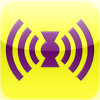Emissions
Detailed App Info:
Application Description
Emissions allows you to decode and encode International Telecommunications Union (ITU) designations of radio frequency (RF) emissions. These 7-character designators are used throughout the world to classify and identify the basic characteristics of radio emissions.
Emissions is useful for anyone dealing with radio emissions, including satellite communications engineers, regulatory agency workers (FCC, NTIA, ITU), telecommunications consultants, telecommunications lawyers, amateur radio operators (hams), wireless telecommunications workers and others.
7-character emission designators are broken into 4 pieces of information:
Necessary bandwidth:
Three (3) significant digits, a decimal point and a unit (Hz, kHz, MHz or GHz), all coded as four (4) characters.
Type of Modulation:
One (1) character representing the modulation type on the main carrier
Nature of Modulation:
One (1) character representing the nature of the signal or signals modulating the main carrier
Type of Information:
One (1) character representing the type of information carried by the emission.
Designator example:
36M0W7F designates a radio frequency emission that has a 36.0 MHz bandwidth, modulates the main carrier using phase modulation, has a single digital carrier without any subcarriers and will be used to carry television video.
Using Emissions:
DECODE - decode 7-character ITU emissions designators into a human-readable form
-- Choose the DECODE tab at the bottom of the screen.
-- Spin the picker wheels, one by one in any order, until the pickers show the complete ITU code. The four yellow text fields in the top half of the screen provide the interpretation.
-- Double-tap anywhere in the top half above the picker wheel to reset the code wheels.
ENCODE - encode the basic information about an RF information into an ITU-acceptable 7-character code.
-- Choose the ENCODE tab at the bottom of the screen.
-- Choose the piece of information to be entered by tapping anywhere on the line for the four areas.
-- Spin the picker wheel(s) until they show the required description.
-- The purple designator at the top of the screen provides the ITU designator code that matches the current descriptions. Be sure to choose all four areas before using the designator code.
Emissions will remember the last DECODE and ENCODE values you entered between sessions.
I welcome your comments, reviews and suggestions for future improvements. Possible future improvements include:
-- Language localization to all standard ITU languages
-- Add optional 4th and 5th alphabetic codes (8th and 9th overall character)
Keywords: ITU, emissions, designator, radio, frequency, modulation, amateur radio, ham radio, satellite, wireless, RF, FCC, NTIA, Federal Communications Commission, National Telecommunications and Information Administration, International Telecommunications Union
Emissions is useful for anyone dealing with radio emissions, including satellite communications engineers, regulatory agency workers (FCC, NTIA, ITU), telecommunications consultants, telecommunications lawyers, amateur radio operators (hams), wireless telecommunications workers and others.
7-character emission designators are broken into 4 pieces of information:
Necessary bandwidth:
Three (3) significant digits, a decimal point and a unit (Hz, kHz, MHz or GHz), all coded as four (4) characters.
Type of Modulation:
One (1) character representing the modulation type on the main carrier
Nature of Modulation:
One (1) character representing the nature of the signal or signals modulating the main carrier
Type of Information:
One (1) character representing the type of information carried by the emission.
Designator example:
36M0W7F designates a radio frequency emission that has a 36.0 MHz bandwidth, modulates the main carrier using phase modulation, has a single digital carrier without any subcarriers and will be used to carry television video.
Using Emissions:
DECODE - decode 7-character ITU emissions designators into a human-readable form
-- Choose the DECODE tab at the bottom of the screen.
-- Spin the picker wheels, one by one in any order, until the pickers show the complete ITU code. The four yellow text fields in the top half of the screen provide the interpretation.
-- Double-tap anywhere in the top half above the picker wheel to reset the code wheels.
ENCODE - encode the basic information about an RF information into an ITU-acceptable 7-character code.
-- Choose the ENCODE tab at the bottom of the screen.
-- Choose the piece of information to be entered by tapping anywhere on the line for the four areas.
-- Spin the picker wheel(s) until they show the required description.
-- The purple designator at the top of the screen provides the ITU designator code that matches the current descriptions. Be sure to choose all four areas before using the designator code.
Emissions will remember the last DECODE and ENCODE values you entered between sessions.
I welcome your comments, reviews and suggestions for future improvements. Possible future improvements include:
-- Language localization to all standard ITU languages
-- Add optional 4th and 5th alphabetic codes (8th and 9th overall character)
Keywords: ITU, emissions, designator, radio, frequency, modulation, amateur radio, ham radio, satellite, wireless, RF, FCC, NTIA, Federal Communications Commission, National Telecommunications and Information Administration, International Telecommunications Union
Requirements
Your mobile device must have at least 172.45 KB of space to download and install Emissions app. Emissions was updated to a new version. Purchase this version for $0.00
If you have any problems with installation or in-app purchase, found bugs, questions, comments about this application, you can visit the official website of LoveMyTech Marc Bjorkman at http://lovemytech.com/LoveMyTech/Emissions.html.
Copyright © 2009 Marc R. Bjorkman, LoveMyTech.com and Language Castle LLC



